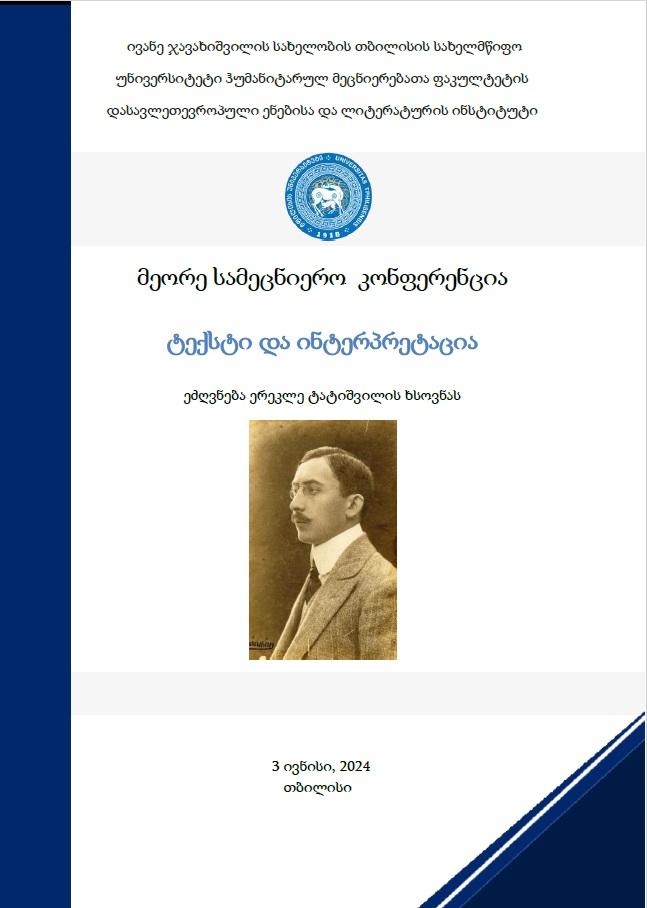Shakespearean Allusions in Djuna Barnes' The Antiphon
Keywords:
Tragedy, Shakespeare, Djuna Barnes, parody, ModernismAbstract
Djuna Barnes published her last piece of work The Antiphon in 1958. The three-act tragedy, which is the final chord and summation of Djuna Barnes' work, is loaded with Shakespearean allusions.
The setting of the tragedy is England, 1939 Burley Hall, where the reader witnesses the gathering of the Hobbs family. Each character shown in the play is a modernist parody of Shakespeare's characters. As in the previous works, in The Anthophon Barnes continues to mention her father's name in an ironic context when she introduces us to his full name - Titus Higby Hobbs of Salem. The name Titus - is related to William Shakespeare's bloody tragedy, Titus Andronicus. Jeremy Hobbs, the organizer of the Hobbs family reunion, does not reveal his identity until the end of the tragedy. In addition to disguises being a common occurrence for Shakespeare's characters, Jeremy's face is directly related to Hamlet. Barnes presents the parody of Hamlet's problem by the actions of Jeremy/Jack. He also refers to himself as Tom o'Bedlam, that leads to associations with King Lear and the anonymous poem written in the 17th century.
The description of Miranda Hobbs shown at the beginning of the first act is consistent with the appearance of the author herself. Elegantly dressed in a black cloak, Miranda echoes Djuna's own attire while creating a symbolic and associative link with Miranda from The Tempest. At first glance, the parodic images of Prospero and his daughter are the complete antipodes of Shakespeare's characters. Prospero's intention to move to a deserted island in order to save his daughter is a manifestation of parental instinct but the circumstances caused by this event question the validity of the father's action. Miranda, who has lived in isolation for twelve years and sees no one but her father, cannot be the object of a healthy attitude. The knowledge that the young girls in Shakespeare's and Barnes' works receive is only information given by their fathers. Titus, who is completely uneducated, and Prospero, whose education is worthless in the context of his dealings with Miranda, appear as men in the same stage of development.
Miranda's brothers' - Dudley's and Elisha's names are mentioned almost in the same context. The second act of The Antiphon culminates in their fitting of donkey and pig masks. In a parodied act of metamorphosis, the brothers present a sexually assaulting scene towards their mother and sister. If in Shakespeare's plays Kent disguises to stay with Lear, Edgar to escape injustice, Viola for service and love, and Portia for good deeds, the heroes of The Antiphon wear masks to rape their mother and sister. Furthermore, the donkey mask is an allusion to A Midsummer Night's Dream where we see the transformation of Bottom into a donkey. In fact, The Antiphon has nothing to do with Shakespeare's magic anymore, Barnes' characters are unable to turn the tragedy into a comedy and escape from the terrible reality, either by repeating the source material or by their own efforts.

